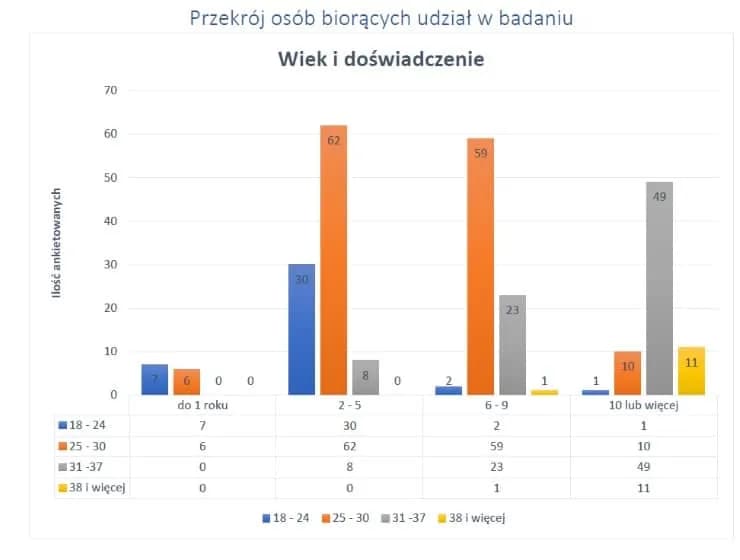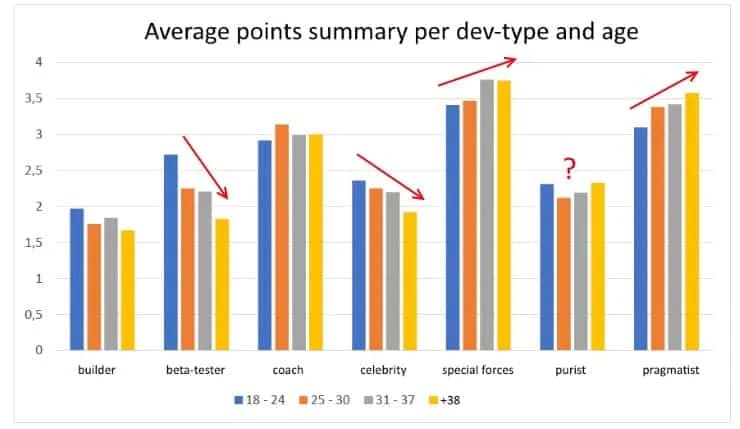A few weeks back I’ve created a survey for developers. The idea was to test my 7 dev types and potentially uncover something new.
The survey was taken by +250 developers from polish IT community. Here is the demographic summary:

Majority of the responders are developers 25-30 age range. Next group are developers over 31 years old. We can also observe from the graph that age goes hand in hand with the experience. This indicates that participants group is rather correct than incorrect.
Survey structure
The survey contained seven types with sample sentences describing each of them. The idea was to give some feeling and understanding about the particular type to the participant. After learning each type the participants were asked to select on scale 1-5 how they identify themselves with it each type. 1 mean not identify at all and 5 strongly identify.
The results synthesis
This is the most interesting graph.

The graph shows the identification of developers groups with each type. At beta-tester and celebrity types, we can see a decreasing trend. Special forces and pragmatist types identification grow as the developers get older.
An interesting result is a purist type. Does it mean that young developers tend to create perfect code? Then they meet the “business world” and try to “deliver”? And after gaining some experience they feel more confident to call themselves pure?
Type pairs

It was also interesting which types are complementary. The graph above visualizes top 4 type pairs.
What defines a pair? The pair is two types where both of them have rating 4 or 5 (in same survey response).
There is a clear leader: special forces - pragmatist. This leads to a conclusion that majority of the responders wants to do the job quickly because they know the system and feel confident. The conclusion needs further research.
Postmortem
I’m fairly satisfied with the results. Most of it is aligned with my thesis and there were no big surprises.
On the other hand, people argued that: 1) the sample sentences by each type are exclusive, 2) some types are missing (like a lazy guy) or 3) they could not find “their type”. One more thing to mention is that identifying some types may be a shame (based on type description) and participants tend to identify with who they want to be (hiding their actual skills).
The feedback will be very useful in next, more detailed, survey.
If you find this idea interesting or want a full survey report, just write me an email.